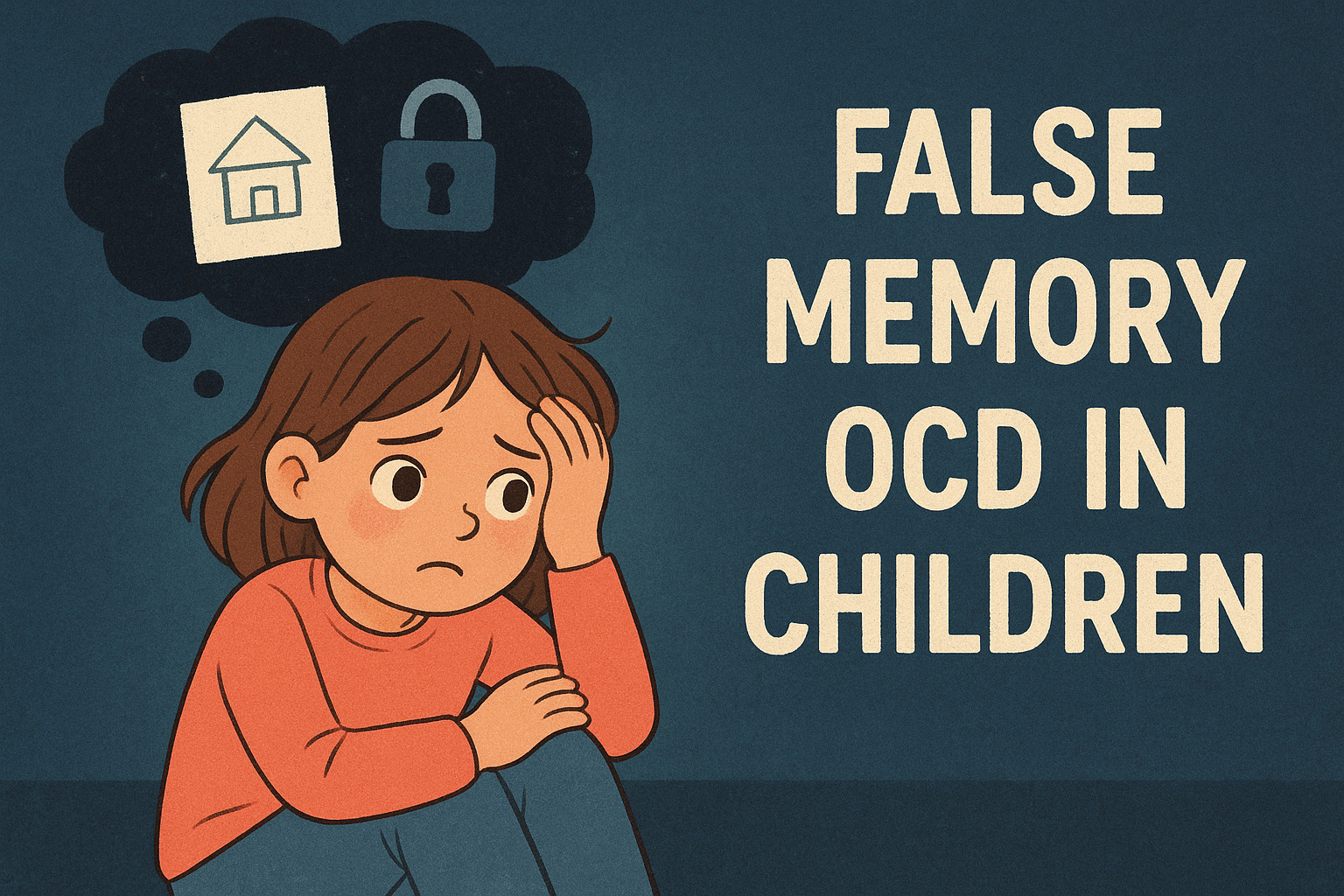False Memory OCD in Children
False Memory OCD in Children is a confusing and distressing form of OCD where children feel trapped in endless doubts and guilt about imagined events. With structured therapy, guidance, and support, recovery is possible, restoring peace of mind and freedom.
Overview
Unlike ordinary forgetfulness, False Memory OCD makes children believe they did something wrong even when they did not. They may say, “I pushed someone” or “I cheated on a test,” and these thoughts feel real enough to cause guilt, anxiety, and repeated questioning. This greatly affects daily life, academics, and relationships, leaving families helpless without structured interventions.
Symptoms
Physical Symptoms
- Fast heartbeat during obsessive thoughts.
- Sweaty palms, trembling, or restlessness.
- Headaches or stomachaches linked with anxiety.
- Sleep difficulties leading to tiredness.
- Struggles to sit still or relax.
Psychological Symptoms
- Endless doubts about imagined events.
- Guilt or shame without evidence.
- Mental replaying of situations to “check” the truth.
- Confessing repeatedly to parents or teachers.
- Avoiding people or situations linked to false doubts.
Types of False Memory OCD
- Event Doubts: Fear of pushing, breaking something, or wrong behavior.
- Moral Doubts: Worry about being sinful or bad without committing mistakes.
- Relationship Doubts: Fear of upsetting loved ones or friends.
- Safety Doubts: Fear of accidentally causing danger.
Causes
Psychological Causes
- Sensitivity toward rules and morality.
- Perfectionism and desire to always be “good.”
- Difficulty separating imagination from actions.
Social Causes
- Strict environments that over-punish mistakes.
- Fear of disappointing caregivers or peers.
- Past experiences of bullying or exclusion.
Environmental Causes
- Stressful life changes like moving schools or homes.
- Exposure to family conflicts.
- Growing up in highly anxious surroundings.
Treatment and Management
At Emotion of Life, guided by Shyam Gupta and Pratibha Gupta, treatment follows the motto: “100 Days, 100 Sessions, 100% OCD Recovery.” Our approach includes:
- Cognitive Behaviour Therapy (CBT): Helps children realize thoughts are not actions.
- Exposure and Response Prevention (ERP): Gradual exposure to thoughts while resisting compulsions.
- Acceptance and Commitment Therapy (ACT): Encourages living with uncertainty while pursuing values.
- Wellness Counselling: Balances study, rest, and play.
- Personality Dynamics Courses: Builds confidence and self-awareness.
- Coping Skills: Journaling, relaxation, and creative play to reduce stress.
- Family Guidance: Equips parents to provide supportive but non-reassuring environments.
Recovery Stories
Aarav’s Journey
Aarav, 9, worried daily that he harmed his brother, repeatedly checking and asking. With therapy at Emotion of Life, he learned to reduce compulsions and regained his happiness, playfulness, and focus at school.
Meera’s Progress
Meera, 12, constantly feared insulting her teacher. After therapy, she learned to control confessions, gained trust in herself, and now participates confidently at school.
Client Reviews
“My son asked the same guilt-filled questions many times a day. At Emotion of Life, we finally got guidance that worked. Today, he studies with focus and plays without guilt.” – Priya, Delhi
“Our daughter lost confidence from worries about saying bad things. Therapy gave her strength and self-belief.” – Arjun, Bangalore
“We had no idea what False Memory OCD was until therapy. Now our daughter thrives at school and home.” – Neelam, Pune
Conclusion
False Memory OCD in children may feel overwhelming, but recovery is achievable. With structured therapy, family involvement, and expert guidance, children can break free from false doubts and regain confidence, joy, and resilience at home and school.



